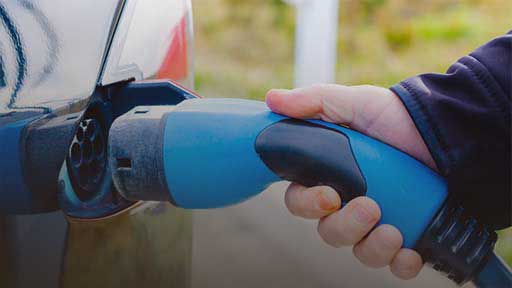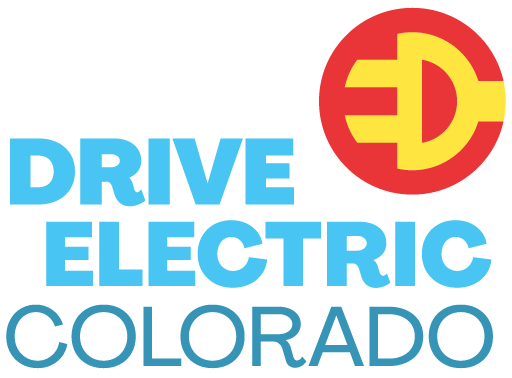
2024 Colorado EV Tax Credit

Federal EV Tax Credit

Federal Infrastructure Tax Credit
Disclaimer: Drive Electric Colorado and its affiliates are not tax advisors. This information is provided to help you make an informed decision. Please consult your tax advisor for advice about your specific situation.
This page was last updated on May 7, 2024.
Supercharge Your Savings
EV owners may qualify for a state or federal tax credit for the purchase/lease of a plug-in hybrid and/or battery electric vehicle.
$3.500 for the purchase or lease of an electric or plug in hybrid EV
Buy or lease a new EV or hybrid and get a $3,500 tax credit
$3,500
for the purchase or lease of full battery electric or plug in hybrid EVs with MSRP up to $80,000
The fine print:
- Effective January 1, 2025
- Individuals may receive an additional $2,500 for EVs under $35,000
- Between January 1, 2024 and January 1, 2026, an additional credit of $600 is allowed if the purchaser or lessee assigns the entire allowable credit to a financing entity or motor vehicle dealer.
- Electric motorcycles are not eligible
- For more information visit: The Colorado Energy Office
Up to $7,500 discount on a new EV — Federal Electric Vehicle Tax Credits
Buy a new EV and get up to a $7500 tax credit
$3,750
if the vehicle has battery components that are manufactured or assembled in North America
$3,750
Will the EV you like qualify? Check here!
The fine print:
**New Requirements (Effective April 18)**
If you take possession of a new clean vehicle on or after April 18, 2023, it must meet critical mineral and battery component requirements to qualify for the credit. This applies even if you bought the vehicle before April 18. Find details here.
Only cars under $55,000 or SUVs, vans, and pickup trucks under $80,000 are eligible for the credit.
Updated February 6, 2023 — IRS has updated the classification of these EVs and raised the MSRP cap from $55,000 to $80,000: Audi Q5 PHEV, Cadillac Lyric, Ford Escape Plug In Hybrid, Ford Mustang Mach‑E, Lincoln Corsair Plug In Hybrid, Tesla Model Y (all variants), Volkswagen ID.4 (all variants).
Income caps for consumers: $150,000 for single filers, $225,000 for head of household and $300,000 for joint filers. Lease credit goes to leasing company – may lower lease cost.
New electric vehicles purchased after 2010 may be eligible for a federal income tax credit of up to $7,500 — assuming sufficient income tax appetite. The credit amount will vary based on the capacity of the battery used to power the vehicle. Lease credit goes to the leasing company, typically lowering the lease cost. Written binding contracts (non-refundable deposit or down payment of 5% of the total contract price) to purchase a qualifying electric vehicle before August 16, 2022 should not be affected by new tax credit stipulations. More information here.
Starting in 2024, dealers will be allowed to offer the EV tax credit as a point-of-sale discount. This applies to both new and used EV tax credits, lowering the upfront vehicle cost instead of having to apply for the credit when filing taxes.
Taxpayers may only claim one credit per vehicle.
Vehicles NOT eligible include GMC Hummer EV, Lucid Air, Tesla Model S and Model X (exceeds pricing limit) and BMW i4, Hyundai Ioniq 5, Kia EV6, Subaru Solterra, and Toyota bZ4X (not assembled in North America).
Check out this one pager from the IRS regarding EV tax credits. For tax credit information on commercial vehicles, click here.
Up to $4,000 discount on a used EV — Federal Electric Vehicle Tax Credits
Buy a USED EV and get up to a $4000 tax credit
$4,000
or %30 OFF
(Whichever is lower)
The fine print:
- Only eligible for vehicles under $25,000, at least 2 years old, purchased from a dealer.
- Income caps for consumers: $75,000 for single filers, $112,500 for head of household and $150,000 for joint filers.
- For other frequently asked questions about the EV tax credits from the Inflation Reduction Act, please click here.
Individuals/Residents — EV Charging Units, 30% off (up to $1,000 per unit)
Individuals/Residents — get up to $1,000 for EV Charging Equipment
$1,000
or 30% OFF
(Whichever is lower)
The fine print:
Individuals/Residents can get a tax credit of 30% (up to $1,000 per unit) of the cost of the EV charging equipment
- Bidirectional charging equipment is eligible
- 2 and 3 wheeled equipment is eligible (like e‑bikes!)
- Equipment must be placed in a low-income community or non-urban area
- More information here
Commercial use — EV Charging Units, 6% off (up to $100,000 per unit)
Commercial uses — get up to $100,000 for EV Charging Equipment
$100,000
or 6% OFF
(Whichever is lower)
The fine print:
Those buying for commercial uses can get a tax credit of 6% (up to $100,000 per unit) of the cost of the EV charging equipment
- Bidirectional charging equipment is eligible
- 2 and 3 wheeled equipment is eligible (like e‑bikes!)
- Equipment must be placed in a low-income community or non-urban area
- More information here
Vehicle Exchange Colorado Program — get up to $6,000 for your old or high-emitting vehicle
Get a rebate when exchanging an old or high-emitting vehicle.
$6,000
for new EVs
$4,000
for used EVs
The fine print:
Participant Eligibility:
- Colorado resident
- 18 years or older
- Eligible to purchase or lease a vehicle in Colorado
- Own an eligible old or high-emitting vehicle
Meet at least one of the following income requirements:
- Household income below 80% of the area median income in the county where the resident lives. View income limits here.
- OR Enrollment in any one of the following financial assistance programs:
- Colorado Affordable Residential Energy (CARE) Program
- Colorado’s Weather Assistance Program (WAP)
- Medicaid
- Regional Transportation District (RTD) LiVE
- Section 8 voucher holder
- Special Supplemental Nutrition Program for Women, Infants, and Children (WIC)
- State of Colorado Low-Income-Energy Assistance Program (LEAP)
- Supplemental Nutrition Assistance Program (SNAP)
Only one VXC rebate is allowed per tax household.
Exchange Vehicle Eligibility:
- The vehicle title must be issued to solely the participant AND must not have a lien (there must not be an outstanding loan for the vehicle)
- The vehicle must be currently registered under the participant’s name with the Colorado Department of Motor Vehicles
- Vehicle must be operational
- Vehicle must be gasoline or diesel-powered
Vehicle must meet one or more of the following criteria:
- Vehicle model year at least 12 years old (model year 2011 or older for a 2023 application) OR
- Vehicle fails an emissions test in Colorado
Motorcycles, recreational vehicles (RVs), campers, and boats are not eligible for VXC.
Eligible EVs:
Participants may redeem a point of sale rebate for the following types of vehicles:
- Battery electric (BEV), or fully electric vehicles, which are powered completely by a battery
- Plug-in Hybrid Electric Vehicles (PHEVs), which are powered by a battery, with an average range of 20–50 miles, and a traditional gas tank and engine.
VXC participants can receive a rebate for a new or used BEV or PHEV with a manufacturer’s suggested retail price (MSRP) or purchase price of $50,000 or less
VXC participants can only purchase or lease a new or used BEV or PHEV from a VXC-authorized automobile dealer.
$450 off an E‑Bike for eligible Colorado residents
Get a rebate on the purchase of a new e‑bike
$450 for a new e‑bike
Coloradans will get a $450 discount off of a qualifying e‑bike purchase (at the point-of-sale) from a participating retailer across the state.
The fine print:
Participant Eligibility:
- Must be a Resident of the State of Colorado
- Must be at least 18 years of age or older
- Must be able to provide proof of Colorado address
- Must be able to provide proof of income
E‑Bike Eligibility:
- Can be any class 1, 2, or 3 E‑Bike in accordance with the State of Colorado's E‑Bike definition
- Must have an electric motor not exceeding 750 watts
- No minimum or maximum purchase price
- May be an adaptive e‑bike
- NEW e‑bikes only
- Must be purchased from list of participating retailers here
For more information visit: The Colorado Energy Office
Up to $1,400 off an E‑Bike for eligible Denver residents
In 2025, the City and County of Denver will offer vouchers only for income-qualified individuals and those in need of an adaptive e‑bike.
$450
E‑bike rebate for Denver Residents
$450
Cargo E‑bike rebate
$1,400
E‑bike rebate for income-qualified
We highly encourage everyone to explore the State of Colorado E‑bike Tax Credit, available to all Coloradans, which offers a valuable $450 discount on the purchase of an e‑bike.
There are a limited number of e‑bike rebate vouchers are available for Denver residents every other month. The rebate voucher is a point-of-sale rebate applied to the price of an e‑bike or e‑cargo bike from a participating bike shop. This means the rebate amount is deducted from the price of the bike when you buy it. You don’t have to submit a receipt and get reimbursed after the purchase. The city awards vouchers on a first-come, first-served basis.
E‑bike Release Dates:
March 25, 2025
May 27, 2025
July 29, 2025
September 30, 2025
November 25, 2025
Rebates will open on these dates at 11:00 a.m.
If you are applying for a Denver voucher in 2025, please note the following:
You can reapply if you received a voucher from a previous release and let it expire.
If you have let a voucher expire prior to 2025, it cannot be extended or re-issued.
Once you redeem a voucher, you cannot apply again, even if your e‑bike was stolen.
For any questions, please reach out to .
Fine Print:
Income qualified:
If you meet our program's income qualifications, you can save up to $900 off the price of an e‑bike. This savings comes from a combination of a $450 income-qualified city voucher and a $450 state e‑bike tax credit. To qualify for the city's rebate, you need to meet the income requirements and apply during a Denver e‑bike rebate release.
The $900 can only cover 80% of the price of an e‑bike, not including sales tax. For example, if your e‑bike is $1,000, the voucher and tax credit will cover a maximum of $800.
Standard Adaptive
If you are a person with a disability and are unable to use a standard e‑bike, you may be eligible to save up to $900 off the price of an adaptive e‑bike. If you receive the city's $450 standard adaptive rebate voucher, you can now combine it with the $450 State of Colorado's e‑bike tax credit. The $900 can only cover 80% of the price of an e‑bike, not including sales tax.
Enhanced Adaptive Rebate
If you are a person with a disability and are unable to use a standard e‑bike, you may be eligible to save up to $1,400 off the price of an adaptive e‑bike. If you receive the city's $950 enhanced adaptive rebate voucher, you can combine it with the $450 State of Colorado's e‑bike tax credit. The $1,400 can only cover 80% of the price of an e‑bike, not including sales tax.
Up to $2,300 off for home wiring upgrades
Denver Charger Rebate for Home Wiring Upgrades
$200
The fine print:
Can be stacked with Xcel Energy's EV Charging rebate, which offers up to $2,300. Get more information on that here.
EV Charging Home Wiring Rebate provides up to $200 to assist with installing either an Energy Star Certified Level 2 EV Charger, a home Tesla charger, or a Ford Charge Station Pro
Work with a registered contractor to install this equipment
Bidirectional charging installations may receive up to $2,000
More info here
Sparked Your Interest?
Beyond federal and state tax credits, many local utility companies offer enticing incentives for electric vehicle owners. Tapping into these additional rebates can supercharge your savings, making the switch to electric even more rewarding.

